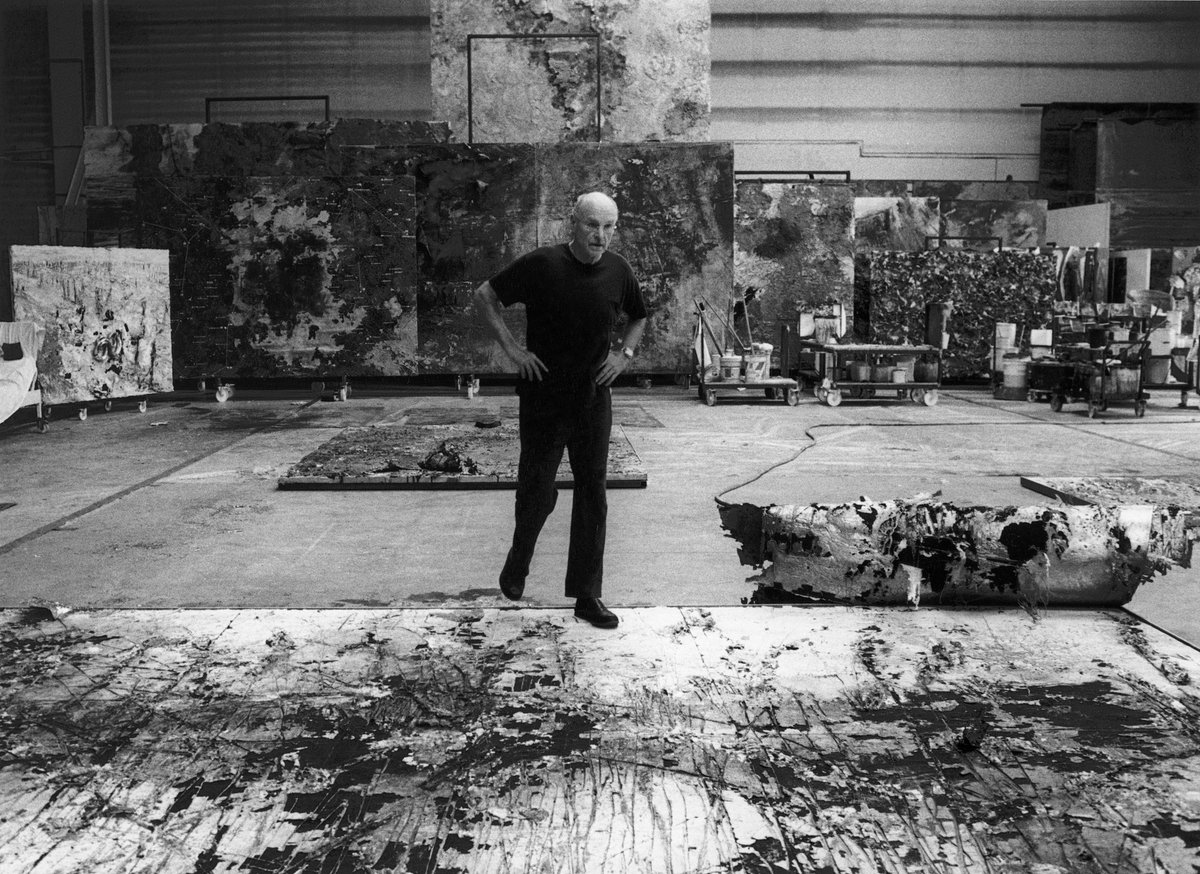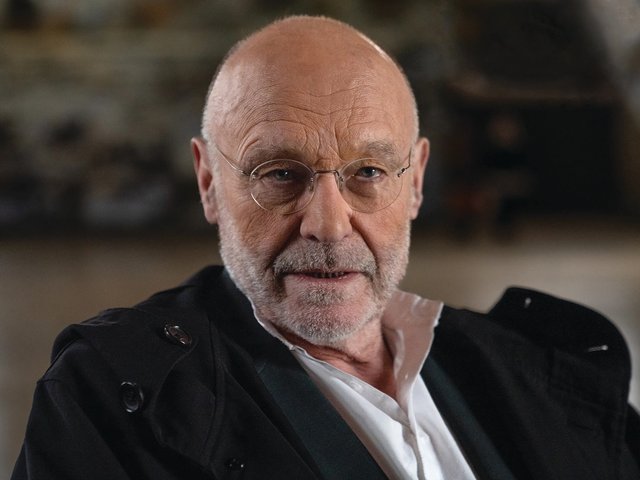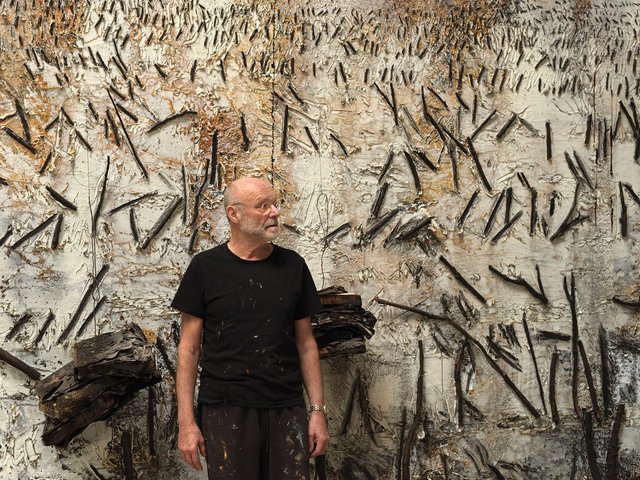In 1969, Anselm Kiefer, a 24-year-old art student, confronted the amnesia of West Germany’s post-war identity. He did this through a series of performances and photo montages featuring caricatural self-portraits in which he performed the banned straight-armed Nazi salute. Costumed, wearing his father’s military coat or cross-dressing, in his studio or in dialogue with historically charged landscapes and monuments, he created images simultaneously absurd, defiant, dissociated and forlorn.
Versions of these works, titled Besetzung (Occupations), Heroische Sinnbilder (Heroic symbols), Für Jean Genet, are the gatekeepers for a show opening on 14 February at the University of Oxford’s Ashmolean Museum. Anselm Kiefer: Early Works, brings together 42 paintings, watercolours, artist books, photos and woodcuts made by Kiefer between 1969 and 1982, with three recent paintings.
It is art from a conflicted time: the 1968 students’ revolt, the Baader-Meinhof terror campaign and a Germany torn apart by the Cold War. Kiefer’s art of this period was populated by gaunt helmeted soldiers and storm-tossed U-boat crews, leaf-shorn forests, blood-spattered rivers and objectified nudes. It was also marked by a potpourri of references to imperialist histories, Romanticism and Expressionism, Nordic mythology, the poetry of Rainer-Maria Rilke and Paul Celan—many of the themes, subjects, and styles that the artist expanded upon in his later more monumental practice, says the show’s curator Lena Fritsch.
The show offers a rare chance to see these early works in one place, in the UK. Apart from the three recent paintings, loaned by Kiefer himself, all come from the collection of the former oil trader and hedge-fund manager Andrew Hall and his wife. The Halls bought them in 2005 from Kiefer’s fellow-German artist Georg Baselitz, along with Baselitz’s castle-studio Schloss Derneburg, near Hanover.
Now a private museum, Derneburg houses part of the collection, with the rest held in two US locations, a converted farmhouse in Vermont and MASS MoCA, an art museum in Massachusetts. The Hall Foundation incidentally co-funds Fritsch's role as the Ashmolean’s first-ever curator of contemporary and Modern art—a position which, she says, does not give Hall direct influence over her curatorial choices, “but I do take advantage of their collection”.
Kiefer’s art often makes for challenging viewing, the Nazi salutes in Occupations included. Why does he choose to bring us so close to this dark history? For an answer, Fritsch quotes Kiefer himself in 1969: “He says, ‘if we don’t remember what we have done, we will do the same thing again.”
- Anselm Kiefer: Early Works at The Ashmolean Museum, Oxford, February 14 -June 15, 2025




